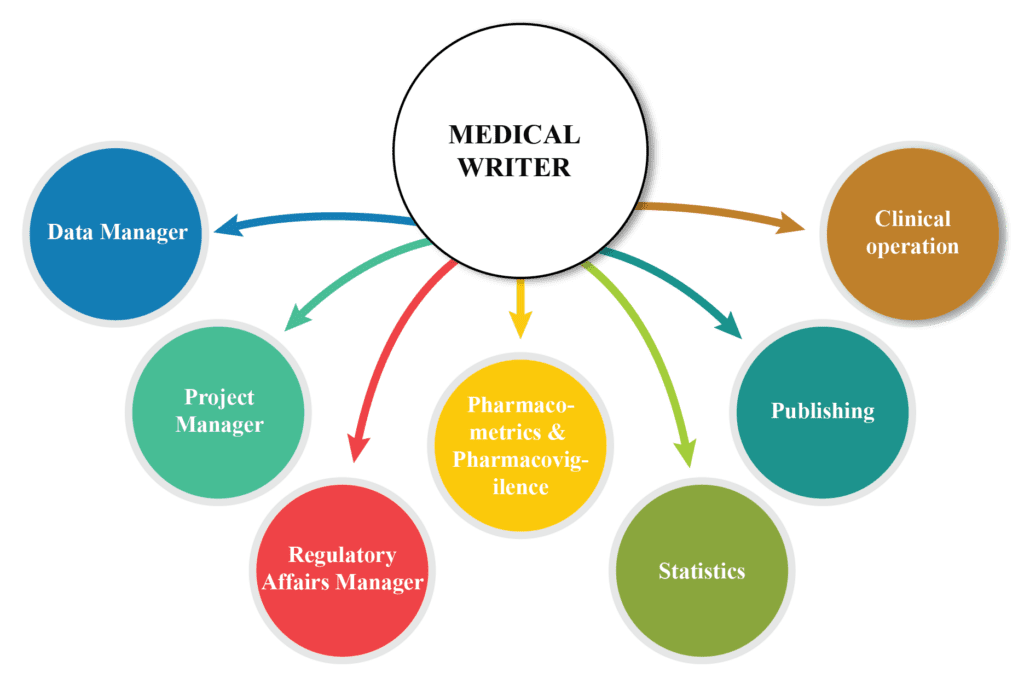Medical Writing – Success of Clinical and Regulatory Documents
Medical Writing – Success of Clinical and Regulatory Documents
Consistency is a key to planning and is supported by well-designed templates, and style guides that are created by the medical writers to be used throughout the drug development process without dramatic revision. By using style guides for consistent medical writing, we can ensure consistency, accuracy, and professionalism, thereby enhancing the quality and readability of clinical trial. Consistency is vital when discussing results and conclusions from a given study in multiple documents, and uniform data presentation between clinical study reports allows results and conclusions to be more easily combined when integrating the summaries. Such consistency can only be given by a well-structured and effective project team of medical writers who interacts on a peer-to-peer level with functional experts. The advantages of using highly skilled medical writers include the output of higher quality documents in less time, the transfer of the medical writing burden away from functional staff so they can focus on their primary roles and responsibilities, and cost savings in both the short- and long-term.
What Makes a Medical Writer Highly Skilled?
Medical writers needs to have an understanding of the medical concepts and terminology, knowledge of relevant guidelines as regards the structure and contents of specific documents, and good writing skills. The education, expertise, and experience of medical writers vary dramatically from one to another, and there are no standardized tools to train or evaluate the skill level of medical writers beyond minimum competency levels. For the purpose of this discussion, highly skilled medical writers are defined as having: Trained and expertise in science/medicine.
Typically, highly skilled medical writers are trained as scientists, veterinarians, nurses, or pharmacists. A solid understanding of the scientific method, medical terminology, and logic is crucial, and advanced scientific degrees (e.g., PhD, DVM, PharmD) are highly valued.
Experience of writing a variety of large number clinical and regulatory documents, including protocols, investigator brochures, and clinical study reports. Ideally, they have also worked on Investigational New Drug applications (INDs) and New Drug Applications (NDAs), on common technical documents (CTDs), commercial functions in pharma, by supporting the development of an enormous range of document types and digital materials, although writers with such experience are far less common. Medical writer combine their knowledge of drug development (e.g., pharmacokinetics, biostatistics, nonclinical and clinical research) and regulatory guidelines (e.g., regulations, guidance documents) to present information at the right level for the target audience.
In addition, regulatory documentation submissions are required to follow set formats and structures, and their contents are guided by regulatory rules and guidelines. Hence, a medical writer involved in the preparation of regulatory documents needs to be familiar with the regulations and prescribed formats for such type of documents.
Since medical writers interact with a large variety of functions, hands-on experience in drug discovery, nonclinical research, clinical development, biostatistics, regulatory affairs, medical affairs, project management, and/or quality assurance is valuable.
A personality that allows them to lead meetings, interact well with a large number and variety of people (none of whom is a direct report), influence processes and decisions, and resolve conflicts in order to drive a successful writing process.
Roles of highly skilled medical writers can play a role in every step of the data analysis and document preparation process. Using a medical writer transfers the writing burden from the functional staff and speeds up the document development process. Medical writers can work permanently or temporarily, full- or part-time, onsite or offsite work and can be hired as employees, as contractors from medical writing companies, or as individual freelancers. Small and large companies tend to use a combination of these options to fit their needs, resources, and work flow.
WorkSure®, is a one stop solution provider to all types of medical writing needs for pharmaceutical companies, biotech organizations, hospitals, clinical research organizations, medical diagnostic companies and other health communication agencies.



